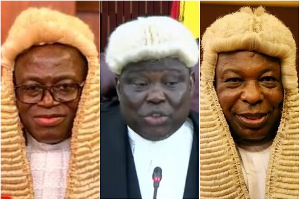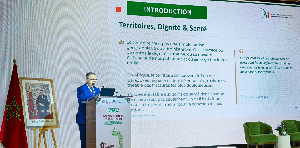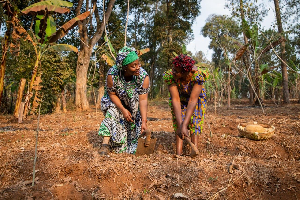Mr. Ignacio Burrull, Head of Cooperation of the European Union (EU) Delegation to Ghana, has urged exporters to understand the required rules and standards and ensure compliance as exporting to the EU market is not an easy walk.
"Any company in Ghana that wants to export to the EU should not only understand the rules and standards required and ensure compliance, but at the same time will have to provide evidence of such compliance."
Mr. Burrull, who was addressing the Steering Committee members of the Trade Related Assistance and Quality-Enabling Programme at a meeting in Accra, said consumer protection is as much an issue in Ghana as it is in the EU, and all consumers should enjoy the same level of protection.
He said any product, irrespective of the country of origin, must comply with specific technical requirements -- saying these requirements are necessary because EU consumers demand that the products are safe and do not compromise their health or cause environmental damage during production, use and waste stages.
To deal with these issues, the EU has supported the Trade Related Assistance and Quality-Enabling Programme with €15million to among others establish a national accreditation body in order to provide Ghanaian and West African laboratories with a local and affordable option for obtaining accreditation of ISO standards. This is expected to lower the costs of compliance for local producers.
Negotiation of the Economic Partnership Agreements (EPAs), which concluded in June this year between the ECOWAS region and the EU, is set to provide one of the biggest markets globally with over 500million consumers.
The agreement will ensure that the EU will open its market to 100 percent of Ghanaian imports, while Ghana will only open up its market over a period of 20 years to a maximum of 75 percent of product lines.
Economic ties
Mr. Burrull said there is a great potential for economic development by building on the strong economic ties between Ghana and the EU in terms of trade and investment.
According to him the EU-Ghana partnership is strong and long lasting -- adding that the EU is the most important trading partner, the biggest source of Foreign Direct Investment, the largest provider of development assistance, and among the biggest sources of remittances from the Ghanaian Diaspora.
The EU trade accounted for 30.5 percent of total Ghanaian trade in 2013. The EU was also the leading destination for Ghana's goods, absorbing 48 percent of exports in 2013.
According to trade figures, beyond oil -- which is the major export product to the EU -- the most important products exported to the EU are cocoa and processed cocoa products, fruit and vegetables -- especially bananas and pineapple -- and processed fish.
He said the EU believes that increased trade and a better integration into the global value chains have an enormous potential to boost economic development.
"Notably, the predictable trade partnership and the unlimited market access offered by the EPA is conducive to attracting investment and supporting economic growth and job-creation in Ghana."
The access to the EU market, he said, particularly benefits many of the priority sectors in Ghana's export diversification strategy, especially for processed food production.
This, he said, is likely to open-up opportunities for skills development and knowledge transfer, and for moving up the value chain toward manufacturing and other strategic sectors.
Business News of Friday, 21 November 2014
Source: B&FT













